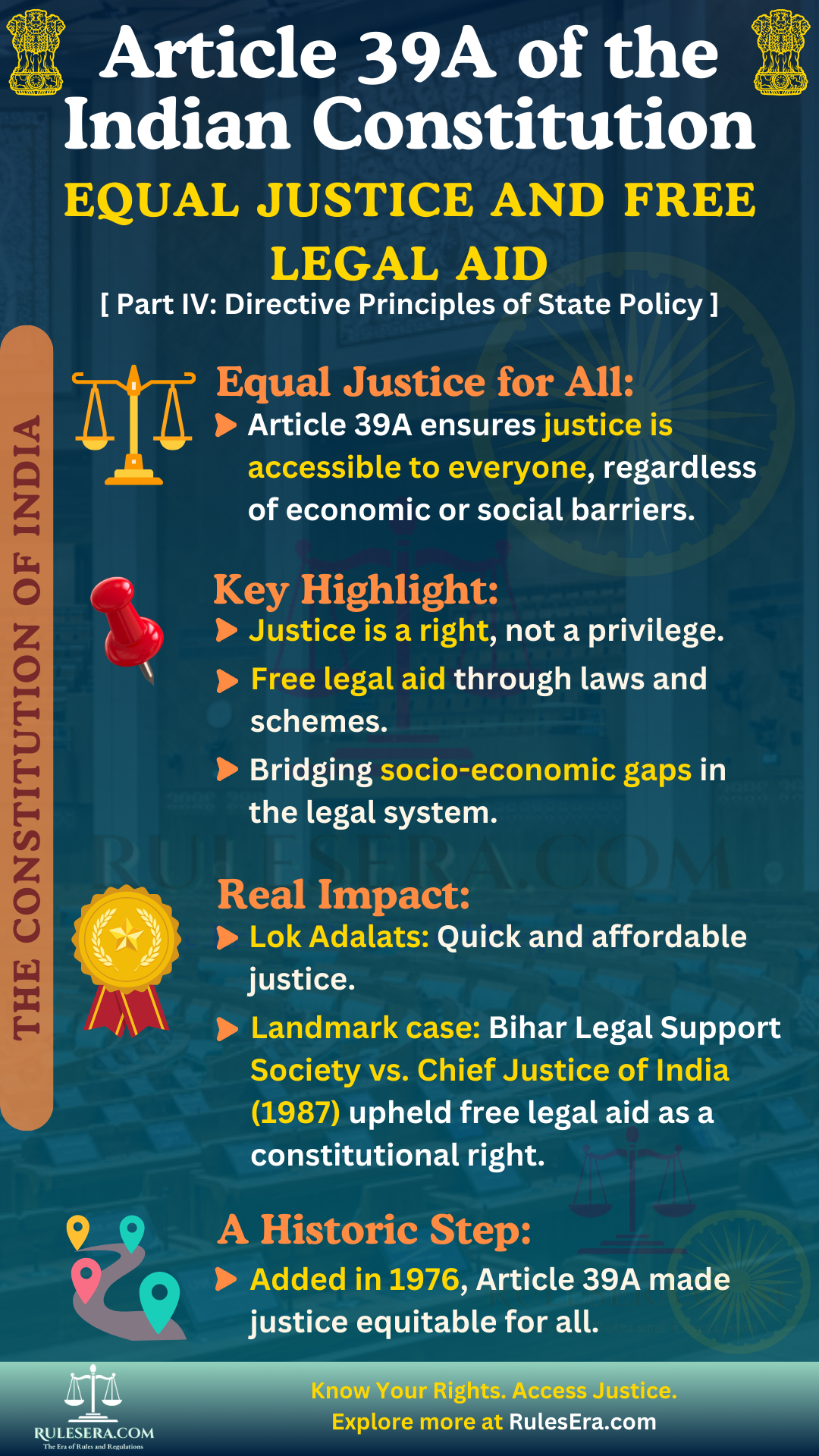Part IV: Directive Principles of State Policy
Article 39A: Equal justice and free legal aid

--- Original Article ---
The State shall secure that the operation of the legal system promotes justice, on a basis of equal opportunity, and shall, in particular, provide free legal aid, by suitable legislation or schemes or in any other way, to ensure that opportunities for securing justice are not denied to any citizen by reason of economic or other disabilities.
Explanation
Article 39A of the Constitution of India embodies the principles of equality and justice, ensuring that every citizen, irrespective of financial or social limitations, has access to the legal system. It promotes justice on the basis of equal opportunity, ensuring that justice is not denied to any citizen.
Equal Justice for All
This article aims to promote justice based on equal opportunity. The State must ensure that the legal system is accessible and impartial, guaranteeing justice for all, including the economically disadvantaged.
Mechanisms for Free Legal Aid
Article 39A mandates the State to provide free legal aid through suitable legislation or schemes. This ensures that no one is denied justice due to an inability to afford legal services. The legal aid mechanisms include providing representation and facilitating access to courts.
Amendments
The article was added via the Constitution (42nd Amendment) Act, 1976, which came into force on January 3, 1977. This amendment reflected the State’s growing recognition of the importance of social welfare and justice for all citizens.
Real-Life Example
The spirit of Article 39A is reflected in initiatives like Lok Adalats (People’s Courts), which provide cost-effective and accessible forums for dispute resolution. The case of Bihar Legal Support Society vs. Chief Justice of India (1987) highlighted the Supreme Court’s assertion that free legal aid is a constitutional right, ensuring that marginalized citizens receive representation.
Historical Significance
Article 39A was introduced during a period of increasing socio-economic disparities. It was a response to the inequalities within the legal system, ensuring that the Constitution serves as a guide for social upliftment and justice for all.
Legislative History
Article 39A was introduced by the 42nd Amendment to ensure equal justice and access to free legal aid. The recognition of this article marked a shift towards a more inclusive legal framework.
Frequently Asked Questions (FAQs):
Its purpose is to ensure equal justice and provide free legal aid so that no one is denied access to justice due to economic or social disadvantages.
It functions through initiatives like Lok Adalats and the provision of free legal aid services that allow marginalized groups to access the legal system.